Toyota’s U.S. Manufacturing Footprint: Impacting Communities with Innovation and Respect
Read MoreFor more than 60 years, Toyota has been a part of the cultural fabric in the United States, establishing communities centered around manufacturing in cities across North America. In fact, many of the people driving Toyota cars and trucks in these areas often have a good idea about who had a hand in assembling them.
“Our family members are the customers,” says Norm Bafunno, senior vice president of Unit Manufacturing and Engineering at Toyota Motor North America (TMNA). “And there’s nothing more rewarding than hearing feedback from them about the Toyotas they’re purchasing and knowing we had a part in that. It’s a source of great pride.”
Today, Toyota operates 14 manufacturing plants in North America, and employs more than 32,000 people to design, engineer and assemble almost half of the vehicles Toyota sells in the United States. By manufacturing in North America, Toyota supports regional suppliers and economies, fosters local communities and assembles high-quality cars and trucks for customers. Toyota’s commitment to assembling vehicles where they are sold not only benefits the areas surrounding local plants, but also helps the company better understand its customers.
“I think that pride in manufacturing resonates within our plants and creates products that will exceed customer expectations,” Bafunno says. “Manufacturing where we sell is what we need to do to be successful in the marketplace.”

Norm Bafunno, senior vice president of Unit Manufacturing and Engineering
Each TMNA manufacturing plant benefits the local economy directly by creating new jobs for people in the region. But according to Bafunno, throughout his career, he’s witnessed firsthand how the manufacturing plants establish and cultivate a sense of community spirit that employees carry with them well beyond the campus grounds.
“During my 24 years at Toyota, I’ve watched manufacturing evolve,” Bafunno says. “I was at the third assembly plant built. As I’ve watched us grow, what I’ve noticed the most is our impact on the lives of people.”
Creating Community
A Toyota plant creates a whole ecosystem within a region, according to Brian Krinock, senior vice president of Vehicle Plants, TMNA. Krinock, who has been with Toyota for 30 years, has spent time at almost every manufacturing plant built in North America. He says that when you factor in the size of each plant — between 400 to 9,000 employees — and include the families of each employee, contractor and supplier, it exponentially increases the number of people in a community impacted by Toyota.
“The impact we have in a community is huge,” Krinock says. “We want to be a good citizen wherever we do business, because we live there, our families are there, and it is important to us to be a part of our communities.”
Krinock believes that much of this attitude stems from Toyota’s company values, which each employee takes to heart both in the workplace and beyond.

“We’re all about our values, ‘Respect for People’ and ‘Continuous Improvement,’” Krinock says. “Having strong values is the most important part of a company culture, and we’ve really fostered that throughout Toyota.”
Toyota employees often volunteer to lead nonprofit boards that provide needed services, such as donating and delivering to food pantries and crisis centers. But while Toyota supports employee groups and fundraisers like Relay for Life and Susan G. Komen’s Race for the Cure, Bafunno says people are quick to help their fellow colleagues and families beyond those organized events — and he’s seen more examples than he can count.
“I find that the communities we are a part of recognize who we are not by some great commercial or someone’s great speech, but by the actions our employees take every day in the community,” Bafunno says. “When a family’s world gets disrupted by some terrible event, our employees step up to contribute. It makes you incredibly proud to be a Toyota employee.”
Continuous Improvement, Across the Board
In addition to charitable work, when employees embrace Toyota’s values, it often leads to innovation, learning and discovery of new ways to get things done on the job. Both Bafunno and Krinock believe that everyone in the organization can embody the culture of “Continuous Improvement,” no matter what they do at Toyota.
“Part of the participation in Toyota goes well beyond the normal job,” Bafunno says. “It goes into using your knowledge and experience to make things better — and that goes for everybody in the organization. It’s a fundamental part of our process.”

Brian Krinock, senior vice president of Vehicle Plants
For example, someone in manufacturing may assemble a nut and bolt in a way that makes it more efficient to grab on the line, or an engineer may improve the way a project is sourced to make it less expensive. Many employees’ proposals build off one another and become incredible innovations over time. Plus, some Toyota employees have even patented their great ideas.
“I want everyone to know that our people are the biggest asset we have,” Krinock says. “Ideas come from the floor, come from the middle to the top of the company all the time. Everyone at Toyota has the ability to change what we do each and every day.”
Building a Sustainable Way Forward
Many of the innovations and ideas that come from employees have to do with sustainability. As Toyota works to reduce waste and make improvements to reach carbon neutrality, its manufacturing plants are doing their part.
“Believing in sustainability is ‘Respect for People,’” Krinock says. “One, because we need to respect our communities. But also, we respect the people who come up with better ideas and empower them to make changes. Our best sustainability ideas come from someone on the floor who says, ‘Hey, why are we doing this this way? Why are we using cardboard? Can we deliver this differently?’”
There’s a misconception that manufacturing, an industry that assembles and creates things, isn’t focused on sustainability, but Bafunno thinks that people would be surprised about the processes that are already in place at each of Toyota’s plants. Almost all plants have established eco zones, which are on-site natural habitats. There are policies to lower water consumption, curb emissions and reuse plastics. In addition, Toyota has some of the first zero-landfill manufacturing facilities in the country. And that’s just the beginning.

“When it comes to sustainability, we have a lot of change coming,” Bafunno says. “It’s a big priority for us. Each of us has these strong pillars of responsibility because it creates job security. If we sit still, our competition is going to blow by us, and we’ll lose some of that stability if we’re not in a leadership role.”
Within the manufacturing team, there’s a strong understanding of the idea of “Continuous Improvement” and a push for more innovation. Both Krinock and Bafunno believe that within the automotive industry, the next few years are going to be transformative — and full of excitement.
“I’ve been in the industry for 36 years,” Krinock says. “The change we’re seeing in automotive right now is like we’ve never seen before. We’re changing the technologies and materials, electrifying our vehicles, updating structures of the vehicle itself and using more recyclable products. Going forward, it’s only going to continue to evolve — and Toyota will be a part of that.”
Tracing Toyota’s U.S. Manufacturing Journey
From its modest beginnings selling just 288 vehicles in 1957, Toyota has been etched into the U.S. cultural fabric for more than 60 years. Here in our backyard, Toyota contributes to world-class design, engineering and assembly of vehicles. Toyota continues to expand its U.S. operations and investment in local communities, while innovating for a better world.
10 U.S. manufacturing plants1
Hover over the map to explore Toyota's U.S. manufacturing footprint.
35
Years manufacturing in the U.S.2
176K+
Employees3
29.9M
Vehicles assembled and counting4
$30.6B
Direct investment in the U.S.
118K
Toyotas assembled5 and exported to 40 countries
$1.15B
Funds donated to U.S. communities and causes
2.1M+
Vehicles sold in 2020
1M+
Vehicles assembled in 2020
76K
Employee volunteer hours invested in 2020
17
Hybrid models sold in the U.S.6
623M
Gallons of water recycled or reused7
18
Pollinator gardens supporting monarch butterflies' migration
Originally published October 5, 2021



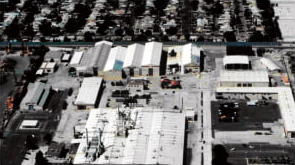
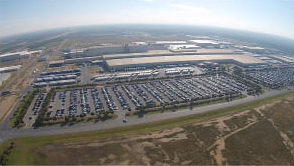
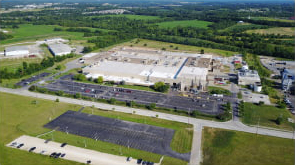
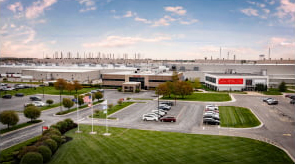
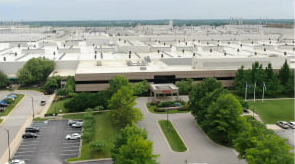
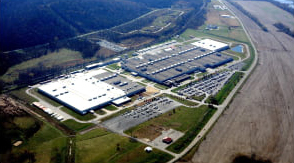
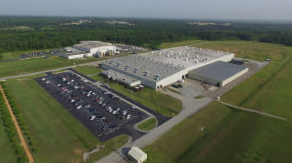
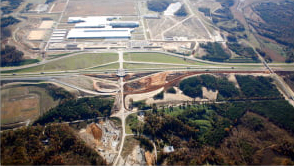
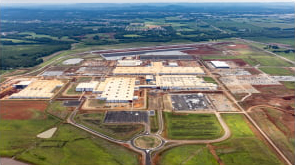
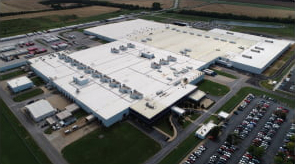
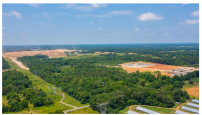

 Add to Cart
Add to Cart Print
Print Convert to PDF
Convert to PDF


